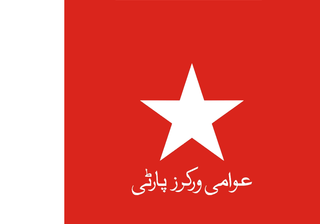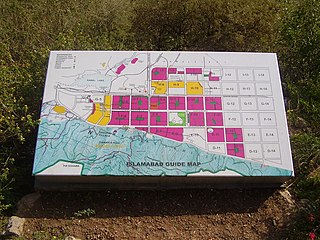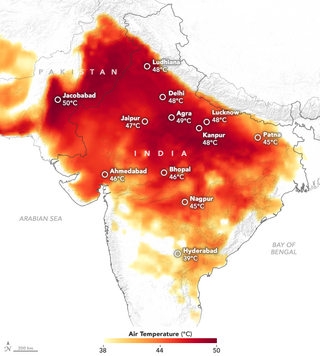
Hepatitis C is an infectious disease caused by the hepatitis C virus (HCV) that primarily affects the liver; it is a type of viral hepatitis. During the initial infection period, people often have mild or no symptoms. Early symptoms can include fever, dark urine, abdominal pain, and yellow tinged skin. The virus persists in the liver, becoming chronic, in about 70% of those initially infected. Early on, chronic infection typically has no symptoms. Over many years however, it often leads to liver disease and occasionally cirrhosis. In some cases, those with cirrhosis will develop serious complications such as liver failure, liver cancer, or dilated blood vessels in the esophagus and stomach.

Christopher Kennedy Lawford was an American author, actor, and activist. He was a member of the prominent Kennedy family, and son of English actor Peter Lawford and Patricia "Pat" Kennedy Lawford, who was a sister of President John F. Kennedy. He graduated from Tufts University in 1977 and earned a Juris Doctor degree from Boston College in 1983. He later earned a master's certificate in Clinical Psychology from Harvard University and was a lecturer on drug addiction.

New Karachi Town lies in the northern part of the city Gulberg Town. It was formed when katchi abadis were resettled following the 1958 coup d'état. In 2001 it was subdivided into 13 union councils. The town system was disbanded in 2011, and New Karachi Town was re-organized as part of Karachi Central District in 2015.
The Orangi Pilot Project collectively designates three Pakistani non-governmental organisations working together, having emerged from a socially innovative project carried out in 1980s in the squatter areas of Orangi, Karachi, Pakistan. It was initiated by Akhtar Hameed Khan and implemented by Perween Rahman. Innovative methods were used to provide adequate low cost sanitation, health, housing and microfinance facilities.
Health in Egypt refers to the overall health of the population of Egypt.
Alipur and Farash are two separate villages which are centuries old, whereas "Farash Town" is a settlement on the land acquired by the Capital Development Authority from the people of surrounding villages like Farash and Punjgran. Alipur and Farash, in Islamabad, are located on the Lehtrar road approx. 17 km from Rawal lake and 9 km from Chak Shahzad. Farash is a Capital Development Authority approved model urban shelter scheme which came into being in 1990. Homeless people from Bari Imam and other Kachi Abadis of Islamabad were settled in Farash.

Sofosbuvir, sold under the brand name Sovaldi among others, is a medication used to treat hepatitis C. It is taken by mouth.
Urbanisation in Pakistan has increased since the time of independence and has several different causes. The majority of southern Pakistan's population lives along the Indus River. Karachi is its most populous city. In the northern half of the country, most of the population lives in an arc formed by the cities of Lahore, Faisalabad, Rawalpindi, Islamabad, Gujranwala, Sialkot, Gujrat, Jhelum, Sargodha, Sheikhupura, Nowshera, Mardan and Peshawar. During 1990–2008, city dwellers made up 36% of Pakistan's population, making it the most urbanised nation in South Asia. Furthermore, 50% of Pakistanis live in towns of 5,000 people or more. Pakistan is one of south Asia's most rapidly urbanising countries, as of at least early 2024.

Simeprevir, sold under the brand name Olysio among others, is a medication used in combination with other medications for the treatment of hepatitis C. It is specifically used for hepatitis C genotype 1 and 4. Medications it is used with include sofosbuvir or ribavirin and peginterferon-alfa. Cure rates are in 80s to 90s percent. It may be used in those who also have HIV/AIDS. It is taken by mouth once daily for typically 12 weeks.

The Awami Workers Party is a left-wing socialist political party in Pakistan. The party seeks to unify the struggles of workers, peasants, students, women and ethnic and religious minorities in Pakistan under the banner of a democratic and socialist political system. After the death of the AWP's founding leader Fanoos Gujjar in 2018, Senior Vice President Yousuf Mustikhan became its president.

Perween Rahman was a Pakistani social activist, director of the Orangi Pilot Project Research and Training Institute. She was murdered on 13 March 2013.

Paritaprevir is an acylsulfonamide inhibitor of the NS3-4A serine protease manufactured by Abbott Laboratories that shows promising results as a treatment of hepatitis C. When given in combination with ritonavir and ribavirin for 12 weeks, the rate of sustained virologic response at 24 weeks after treatment has been estimated to be 95% for those with hepatitis C virus genotype 1. Resistance to treatment with paritaprevir is uncommon, because it targets the binding site, but has been seen to arise due to mutations at positions 155 and 168 in NS3.

I-11 is a sector of Islamabad, Pakistan. It is a lightly built area, located on the southwestern edge of the city. I-11 borders Rawalpindi to the south and neighbors I-10 and I-12, while sectors H-10, H-11 and H-12 are located adjacent. CDA has taken the possession of land from illegal encroachers and land grabbers and development work has started to hand over the possession to original owners of the plots.
In Karachi, a parallel power supply has been running for years as a result of electricity theft.
Aasim Sajjad Akhtar is a teacher, left wing politician and columnist based in Pakistan. Akhtar is associate professor of political economy at Quaid-i-Azam University, Islamabad, Pakistan. He served as the president of the Awami Workers Party's Punjab executive committee from March 16, 2014 to January 17, 2020. He is deputy general secretary of Awami Workers Party.

From mid-May to mid-June 2019, the republics of India and Pakistan had a severe heat wave. It was one of the hottest and longest heat waves in the subcontinent since the two countries began recording weather reports. The highest temperatures occurred in Churu, Rajasthan, reaching up to 50.8 °C (123.4 °F), a near record high in India, missing the record of 51.0 °C (123.8 °F) set in 2016 by a fraction of a degree. As of 12 June 2019, 32 days are classified as parts of the heatwave, making it the second longest ever recorded.
Ismat Raza Shahjahan is a socialist-feminist political leader from Khyber Pakhtunkhwa, Pakistan. She is the president of Women Democratic Front (WDF), the deputy general-secretary of the Awami Workers Party (AWP), and a leading member of the Pashtun Tahafuz Movement (PTM).
Tooba Syed is a Pakistani feminist organiser, writer, and gender researcher. She is the secretary information and publishing of the feminist organization Women Democratic Front.
Ammar Rashid is a Pakistani researcher, academic, political worker and organizer of the left-wing party Awami Workers Party. He has written many columns for Daily Times (Pakistan) and Dawn News. He has taught as faculty of Centre of excellence for Gender Studies in Quaid-i-Azam University, Islamabad, Pakistan and Pakistan Institute of Development Economics. He ran for the National Assembly seat NA-53 in the Islamabad capital territory for 2018 Pakistani general election. He is senior researcher at Heartfile.

Squatting in Pakistan is the occupation of unused land or derelict buildings without the permission of the owner. Squatted informal settlements formed following the creation of Pakistan in 1947. They were known first as "bastis" then later "katchi abadis" and the inhabitants were forcibly resettled under military rule. By 2007, there were 7.5 million squatters in Karachi alone. The Sindh Katchi Abadi Authority (SKAA) announced in 2019 that a total of 1,414 katchi abadis had been located and 1,006 of those had been contacted with regards to beginning a regularization process.











